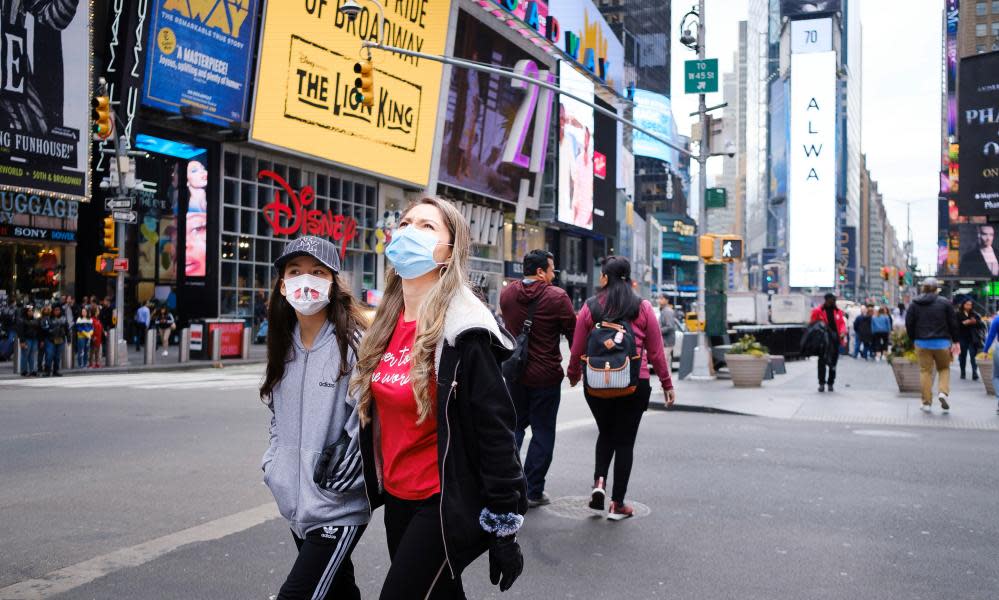Will coronavirus be a bonding experience, or every man for himself?

There was a moment, during Donald Trump’s address to the nation on Wednesday night, when I almost felt sorry for the man. There he sat, face the colour of the Oval Office drapes behind him, marshalling every last resource towards the overwhelming task of trying to stick to a script. In his worst nightmares this cannot have been what he thought he’d signed up for. And it is only going to get worse.
It’s a strange side-effect of the coronavirus that, glancing in the rear-view mirror, time seems to be passing differently. The attitudes of even a week ago now seem, as the virus spreads, part of a prelapsarian innocence, when it was still possible to shrug and make jokes and wonder if now was the time to book a $300 return flight to London.
In New York, Google sent home its employees and a lot of the private schools shut, while at the gates of the public school every morning, school staff exchanged incredulous glances with parents and said, “We’re going to carry on pretending everything’s normal!” Public health officials advised us that panic, at least in the form of radically altering our behaviours, was the only appropriate response.
Related: The hardest thing about Italy’s coronavirus lockdown? Caging my teenage daughter | Paola Locati
I remember witnessing an argument at college a million years ago, about what life would have been like during the blitz. A friend had averred that, apart from the massive threat of death and Nazi invasion, it must’ve been great, living through such a community-bonding experience. My friend Emily snorted at this, I recall, and said surely it would have been the complete opposite; an unleashing of the every-man-for-himself mentality, and all the venal, craven impulses that went with it.
It’s hard to tell so far which way the present threat is pushing us. In earlier stages of the outbreak, there was a callousness among the healthy towards those at risk, but that seems to be changing as it sinks in how screwed we all are if the hospitals become overwhelmed.
I found myself briefly outraged at a friend who wanted to take advantage of the deeply discounted Broadway tickets and see a show, which seemed both bad in its potential impact – increasing one’s exposure and therefore spread of the disease – but also for how it looked. No one wants to be the guy unleashing an uncovered cough in the elevator.
In other areas, though, I’m a total hypocrite. Some of those whose workplaces have shut feel they can’t, in good conscience, ask their kids’ babysitters to come in, but I’m not one of them. If these are the last days of productivity before school closures, it will take martial law before a lot of people stand down their childcare providers and give up on getting anything done until April.
I keep thinking about kindness; the ease with which, in earlier days, the disease was dismissed as a problem mostly affecting far-flung places, that, when it reached home, was no big deal since it killed “only” the elderly. This seems appalling now and not just because of how the disease spreads. To be kind, or to be seen to be kind – not blaming other parts of the world, as Trump did, or exposing one’s vulnerable neighbours to risk – is as necessary as washing one’s hands.
• Emma Brockes is a Guardian columnist

 Yahoo News
Yahoo News 
